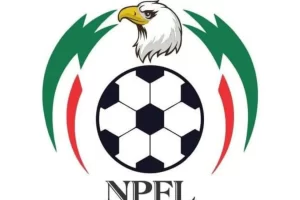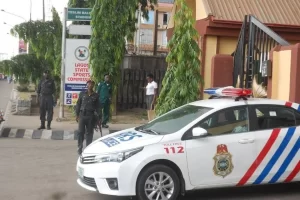Chima Azubuike
Civil Society in Malaria Control, Immunisation and Nutrition has lamented the dearth of malaria commodities in health facilities across Local Government Areas in Gombe State.
Speaking on Monday during a media briefing with journalists and executive directors of Community-Based Organisations in Gombe, Hassana Maisanda, State Coordinator of ACOMIN, explained that malaria is one of Nigeria’s most important public health concerns because of the millions of deaths it caused annually.
The ACOMIN boss said more efforts were needed to expand access to malaria treatment in the state.
Maisanda in a presentation titled Promoting and Celebrating Community Contributions to Health noted that malaria is a treatable and preventable disease caused by a group of parasites called plasmodium, adding that it is transmitted through the bite of an infected female anopheles mosquito.
She stressed that Nigeria has recorded the highest number of global malaria cases (27% of global malaria cases) and accounts for the highest number of deaths (23% of global malaria deaths) since 2019.
She said, “Pregnant women and children under the age of five are the most vulnerable groups to malaria. Pregnant women infected with malaria usually have more severe symptoms and outcomes, with higher rates of miscarriage, intrauterine demise, premature delivery, low birth weight in newborn babies, and neonatal death.
“They are also at a higher risk for severe anaemia and maternal death. Compared to the highest socioeconomic group. Prevalence among children in the lowest socioeconomic group is seven times higher.
“In advancing equity, given that health is a fundamental human right, the civil society sees the need and is working towards increasing equity as it pertains to health, particularly access to malaria services as well as service delivery. Every person irrespective of their socio-economic class, gender, ethnicity, demography, and location should have equal rights and unrestricted access to malaria treatment and other healthcare services.”
Maisanda noted that ACOMIN encourages building the resilience of the community health systems which can be achieved by promoting community ownership and investment in health systems.
“When strong health systems are in place, it is almost certain that efforts put in to fight malaria will be effective, trackable, and sustainable, especially at the community level.
“Community investments in health have noticeably improved since the introduction of the Community-led Monitoring project being implemented by ACOMIN, with support from the Global Fund.
“On this grant, ACOMIN and its member Community-based Organisations are working in eight LGAs within Gombe State namely; Akko, Yamaltu Deba, Kaltungo, Kwami, Dukku, Billiri, Funakaye, and Balanga.
“The CBOs implementing the project were equipped with the knowledge, skills and resources needed to empower community members to take ownership and invest in their health,” she said.
Also speaking, the State Programme Officer of ACOMIN, Samuel Chuwang, who commended the current employment of health workers in the state said they were not deployed to relevant primary healthcare facilities where their services are required.
Chuwang said, “We appreciate the recent employment but some of them are not deployed to facilities where their services are required. Sometimes, some facilities have more hands than the other while some are left with little or no manpower.”
Copyright PUNCH
All rights reserved. This material, and other digital content on this website, may not be reproduced, published, broadcast, rewritten or redistributed in whole or in part without prior express written permission from PUNCH.
Contact: [email protected]



















Add Comment